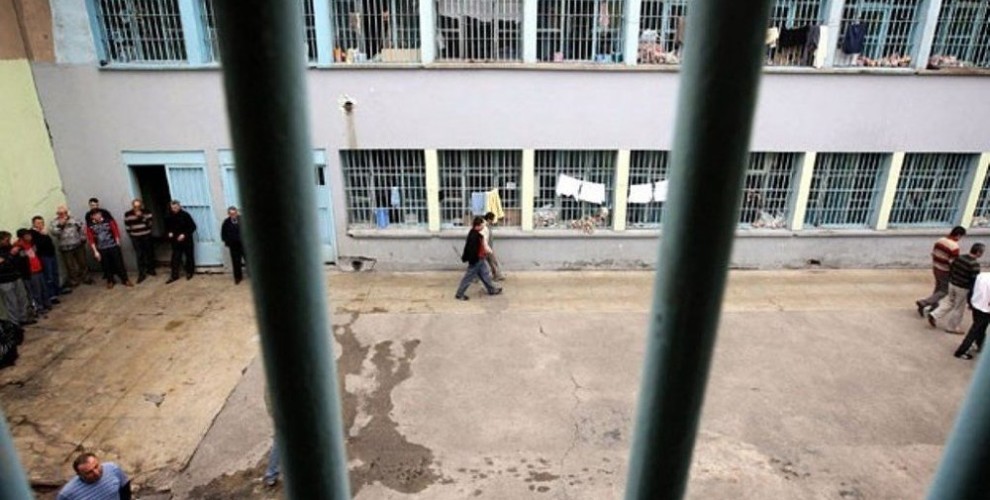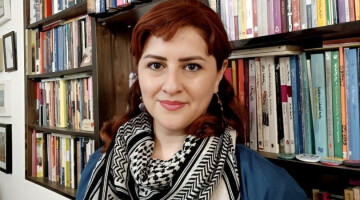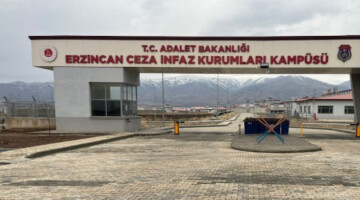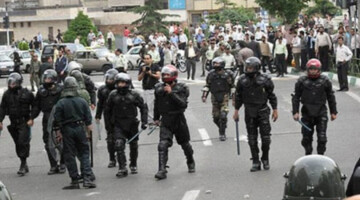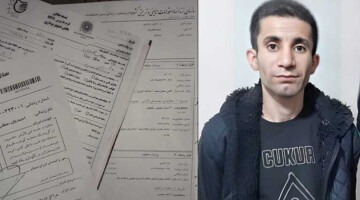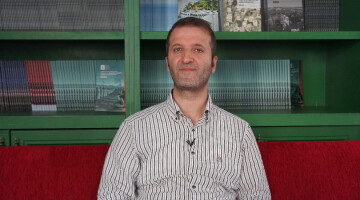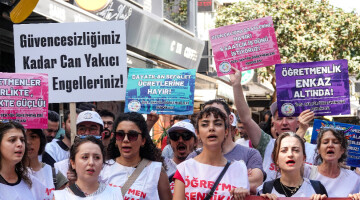The Turkish state’s prison policies cause more severe rights violations with every passing day, while continuing to pose a societal and political problem. Especially in terms of political prisoners, each one of the prisons in Kurdistan and Turkey are nothing but torture centers. All governments to date have sought to deepen the issue, not to resolve anything. The methods got “richer” during the AKP governments.
Strip searches, intense disciplinary actions, exiles, torture, mistreatment, isolation, undignified treatment of visitors and such similar practices are the most prominent among the AKP’s policies of intimidation against prisons.
53 NEW PRISONS
Many states look for ways to improve the living quality of their own people, while the Turkish state promises the people new prisons. Projects for 18 prisons with a total of 2.269.924 square meters have been completed. According to the Justice Ministry’s 2018 planning, 53 new prisons will be built with a total surface area of 4.115.558 square meters.
This will add a further 53 prisons to the tally of prisons from 291 closed prisons, 70 standalone open prisons, 3 juvenile correctional facilities, 8 closed women’s prisons, 5 open women’s prisons and 7 closed juvenile prisons, a total of 384.
PRISONS WITH AN ISOLATION CONCEPT
These new prisons under construction are significant in that they are being built in accordance with the policy of isolation that started with Kurdish People’s Leader Abdullah Öcalan’s arrest and imprisonment in the Imrali Island Prison with the February 15 International Plot. There are bids almost every day on the prisons, which continue to be built as Type E, Type L, Type F, Secure and High Security prisons.
Statistics prepared by the Council of Europe and the University of Lausanne showing the status of European prisons cites Bulgaria, Turkey, Chechya, Serbia and Denmark as countries whose prison population increased the most, with 10.8%, 9.5%, 7.6%, 6.6% and 5.5% respectively. These prisons built as campuses include hospitals and court roms, which means the prisoners will now never leave the prison site even for these situations. This shows a generalization of the isolation practice.
INCREASING NUMBER OF PRISONERS
The number of prisoners has risen to 260.000 with the AKP governments, and is foreseen to rise to 800.000 with the newly opened or soon to open campuses. Based on the population of Kurdistan and Turkey, that means 1 out of every 100 citizens will be in prison. When the AKP first came to power, there were a total of 59.429 people in prisons as of December 31, 2002. In the 16 years since, the number has quadrupled. As of May 15, 2018, there are 246.416 prisoners in prisons, with 66.902 of them on remand, 28.488 awaiting appeals and 151.026 are convicted.
The 315% increase in the number of prisoners is a record high in the history of Turkey’s prisons. The most recent report issued by the Civil Society in the Penal System Association (CISST) shows that the number of prisoners rose from 55.000 to 176.000 between 2005 and 2015, and that the number is over 260.000 today.
1500 SICK PRISONERS INCLUDING 402 IN CRITICAL CONDITION
402 out of over 1.500 sick prisoners are in a critical condition. The Turkish state’s approach towards sick prisoners were seen most recently in the cases of Kocer Ozdal and Celal Seker, who were issued reports by the Forensic Medicine Institute that said there was no impediment to their visits to hospitals and that they can stay in prison, essentially being left for dead, and both lost their lives soon after.
Human Rights Association (IHD) Amed Chapter Chairperson Lawyer Abdullah Zeytun spoke to the ANF about life in prisons that got exponentially more difficult during AKP governments and gave information on the sick prisoners, rights violations during exiles and systemic torture.
TORTURE AND MISTREATMENT
Lawyer Zeytun said the political and financial policies in Turkey have caused political and social inequality, which has led to an inflated number of criminal and political arrests in the penal system: “Of course there have always been the reality of prisons where political prisoners and others have suffered many systemic violations, and these violations continue.
We see various types of torture and mistreatment in almost every prison. The imposition of standing in attention during roll counts, solitary confinement penalties for disciplinary investigations, visitation bans, deprivation from medical access and exiles are some of the things we encounter. The current political atmosphere in Turkey manifests the harshest against arrestees and convicts. We see a special attitude against political prisoners in many prisons, starting with Elazig, Tarsus and Patnos.”
TORTURE BY WARDENS
Zeytun spoke about the reports they prepared on the torture and mistreatment in prisons: “For instance, in the Elazig Prison, any prisoner who objects to any practice by the administration first goes through a disciplinary investigation. After that, the prisoner who criticizes the prison may be subjected to torture by wardens.
We have determined this through appeals by prisoners in Elazig Prison No.2 and from our own observations. Another example of mistreatment is prisoners being handcuffed on their way to the hospital, or visiting families being subjected to strip searches. Our inspection mission for such practices is prevented in all prisons.”
VISITORS TORTURED
Zeytun said families as well as prisoners are punished through policies of exile: “Right now, thousands of families in Kurdish provinces have children in prisons in Western Turkey and in the northern Black Sea region. They can only visit their children once every few months. After they go and visit their relatives, they come and appeal with us about the mistreatment they were subjected to, and we see this repeated every time.
For instance, half of the hour-long visit goes to searches by the wardens. In the remaining 30 minutes, there is constant surveillence by the wardens, who attend and can intervene and stop the private visits. When families object to the severe torture and mistreatment against the prisoner, they are subjected to similar torture and mistreatment themselves, as stated in their appeals to us. All these are used as intimidation tactics for both prisoners and their families.”
MANY SICK PRISONERS LOST THEIR LIVES
“As far as we could determine, there are over 1.500 sick prisoners in prisons with 402 of them in critical condition,” said Zeytun and added: “Of course we believe the actual number is much higher. Many sick prisoners have lost their lives in prisons, like Kocer Ozdal and Celal Seker, because of the structure of both the Executions Act and the Forensic Medicine Institute when it comes to sick prisoners in Turkey.
We have appealed countless times to have sick prisoners receive treatment in accordance with the Executions Act Article 16, but they have all been rejected following reports by the courts and the Forensic Medicine Institute’s reports that the prisoners are ‘fit for prison’. The prisoners were left for dead. We consider each of these murders without a doubt.”

